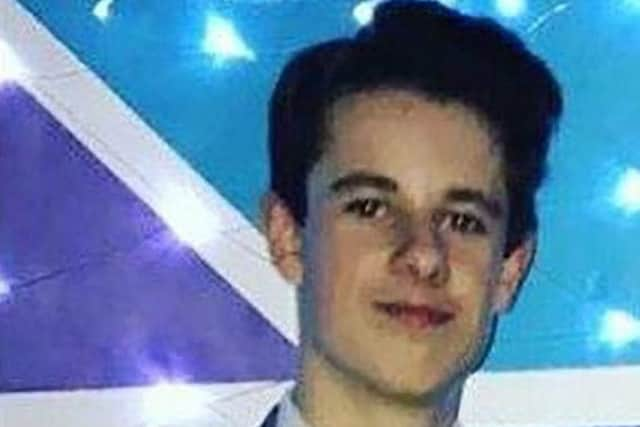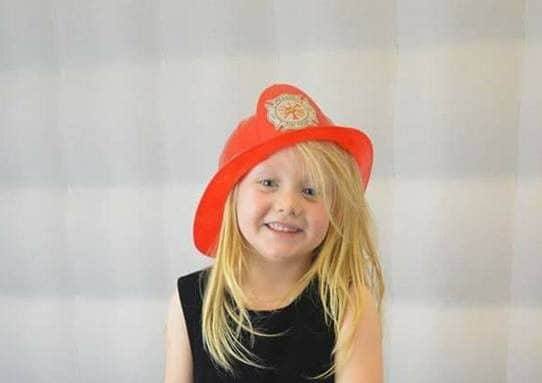Alesha MacPhail: Why teen killer Aaron Campbell can be named
The depraved teen was given anonymity throughout his trial at the High Court in Glasgow, due to his age.
Scotland gives people under the age of 18 statutory anonymity under Section 47 of the Criminal procedure (Scotland) Act 1995.


Advertisement
Hide AdAdvertisement
Hide AdBut a judge can be requested to lift the ban, if it is considered to be in the public interest, so a criminal can be named and pictured.
‘wickedest’ crime
Campbell, from Ardbeg, Isle of Bute, was told that the rape, murder and abduction of six-year-old Alesha was among the ‘wickedest’ crimes ever heard at the High Court in Glasgow.


Judge Lord Matthews, who presided over the nine-day trial, held a hearing to decide whether anonymity should be lifted.
Campbell was present at the hearing along with dozens of reporters, and lawyers.
Law change
Before September 2015, his identity would have been known to the general public during the trial as anonymity was granted to those under the age of 16.
However, the law in Scotland changed to become aligned with the rest of the UK.
During the trial, Campbell’s identity was protected due to his age - however, he tried to pin the blame on Alesha’s father’s girlfriend, Toni-Louise McLachlan, aged 18.
Campbell cited a special defence of incrimination blaming her for Alesha’s murder.
Public interest
This was cited as a public interest reason for naming him.
Advertisement
Hide AdAdvertisement
Hide AdPublic interest reasons were cited as the abhorrent nature of the crimes, in which the public will have had ‘substantial interest’, and that the prohibition on identification would end on Campbell’s 18th birthday, on May 16 2020.
It was said that due to the murder conviction, the sentence would cause him to be jailed beyond his 18th birthday, when the anonymity would end.
Accusations against Toni-Louise McLachlan
Crucial to the decision to name Aaron Campbell was the accusations he made against Toni-Louise McLachlan, aged 18.
Representing Scots media organisations urging Lord Matthews to lift the ban, Anthony Graham QC told the court that the allegations Campbell made against Ms McLachlan was a ‘substantial attempt to pervert the course of justice’.
Mr Graham said: “The incriminee enjoyed no statutory protection and was named and photographed and had her photographs published.
“He has introduced the issue of sexual involvement with the incriminee.
“By the very nature of that defence and by finding him party to that defence, the pannel has introduced to the trial adult themes.”
No appeal was lodged by Campbell’s defence, Brian McConnachie QC.
‘Risk of attack’
Advertisement
Hide AdAdvertisement
Hide AdBut the brief told the court that Campbell was ‘at risk of attack’.
Mr McConnachie said: “There was a history of self-harm, of anxiety and he had been tested for ADHD and was awaiting further testing due at the time of his arrest.
“As far as he’s concerned, there’s issues both with attack from others and the potential matter of self-harm.
“The onus is on the party seeking to have the prohibition lifted and to satisfy the court.”
Media lawyer Mr Graham said: “It’s naive to think he remains anonymous on Bute, a community in no little part affected by this.”
And he said Campbell would be locked up at HMYOI Polmont in Falkirk until he was 21.
Judge Lord Matthews told the court: “Children don’t usually commit offences of this nature.”
Mr Graham concurred and said: “It’s unusual for a child to be convicted of murder.”
Advertisement
Hide AdAdvertisement
Hide AdHe urged for Campbell’s name, his address, his images, school and ‘such background which is not protected otherwise’ should be allowed to be published.
Granting the application, Lord Matthews said: “I intend to name the accused.”
